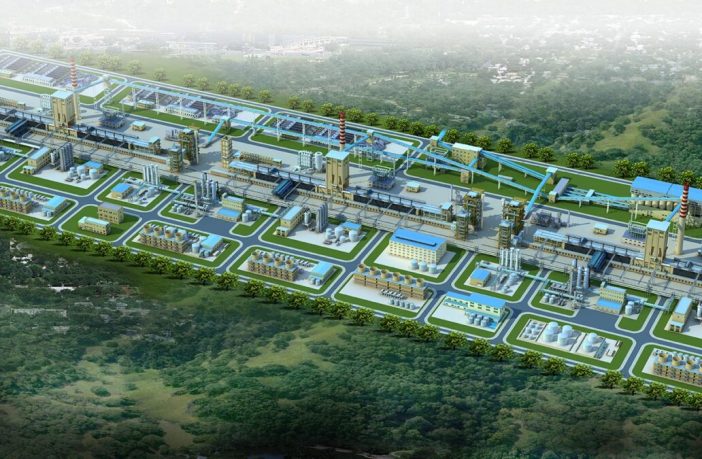- In December 2022, a coalition of civil society and community-based groups launched a legal challenge of the environmental approval granted to Musina Makhado Special Economic Zone SOC Ltd (MMSEZ) to develop the Musina Makhado industrial mega-complex in Limpopo province.
- This court challenge is in addition to two other legal proceedings launched by two separate groups of environmental justice organisations in recent weeks.
- Additional legal challenges include Herd Nature Reserve, Living Limpopo and the Centre for Applied Legal Studies in the Polokwane High Court earlier this month; and a further review launched by the Vhembe Mineral Resources Stakeholders Forum and Others.
MMSEZ SOC intends to clear between 3600 to 8000 hectares of pristine land, including indigenous vegetation, in the water-scarce Limpopo province in order to make way for a highly polluting mega-industrial project, which would include a coal-fired power station and 14 other heavy metal and polluting industries.

The CEO of the Musina-Makhado Special Economic Zone (MMSEZ) State-Owned Corporation (SOC), Lehlogonolo Masoga of the Limpopo Economic Development Agency (LEDA). Image credit: Muntu Vilakazi
The land that would be cleared to make space for this development is land of considerable significance for cultural heritage, biodiversity and for the climate resilience of the area. It is home to a wide variety of indigenous trees, including over 100 000 protected trees, such as Baobabs. It is also an area with a number of wetlands and other water sources – in an area which is recognised as extremely water-scarce and vulnerable to increasing drying trends as climate change intensifies.In terms of cultural significance, the land under threat is also home to many medicinal plants, sacred burial sites, and other places of great importance to local communities.
“Our cultural heritage and our spirituality are in the indigenous forests which cannot be replaced if removed. Our traditions are passed on from generation to generation, and we, the present population, have to take care of the indigenous forests knowing we need to pass this to the next generation. Our way of life cannot be manufactured by means of planting another forest. Removal of the indigenous forests, and the clearing of this land to make way for this project, will lead to a collapse in our way of life,” says Mpatheleni Makaulule, of Dzumo La Mupo, the first applicant in the case.
- The parties – Earthlife Africa, Dzomo La Mupo, the Mining and Environmental Justice Community Network of South Africa (MEJCON-SA) and groundWork (Friends of the Earth South Africa), represented by the Centre for Environmental Rights (CER), are challenging the province’s decision to authorise the project on grounds that:
- Since the proposed project has both international and inter-provincial impacts, the Limpopo Department of Economic Development and Tourism (LEDET) was not the correct authority to consider and decide this project. The National Environmental Management Act makes it clear that, in such circumstances, the environmental impact assessment (EIA) ought to have been decided by the national Department of Forestry, Fisheries and the Environment, and the Minister.
- Moreover, LEDET has a vested interest in the granting of environmental authorisation, and could therefore not have made an unbiased decision on the project.
- The Chief Director and the MEC failed to consider the cumulative impacts of the proposed MMSEZ project. They considered the land clearance in isolation, giving no consideration to all the impacts of the industrial developments that will inevitably follow once the land is cleared for the development.
- The Chief Director and the MEC failed to adequately consider the climate change impacts of this project. The developments proposed as part of the MMSEZ project would give rise to a staggering volume of greenhouse gas emissions, and cut significantly into South Africa’s tightening carbon budget. In addition, the land clearance alone would give rise to climate impacts that were not adequately considered: not only would the clearance of trees mean the removal of sinks that absorb carbon, but the degradation of the land, ecosystems and water resources in the area would make the area and the communities living there dramatically more vulnerable to climate change impacts such as droughts, fires, and extreme weather events.
- The Chief Director of LEDET and the Limpopo MEC failed adequately to consider the water impacts of the project. It is also not clear where the project would get the water needed to operate – with speculative plans mentioned to acquire the water from Zimbabwe.
- The Chief Director and the MEC failed to consider the impact of the activities on cultural rights
The government respondents are now obliged to make available the records that were before them when they made the decisions to authorise the project and dismiss the applicants’ appeal. None of the respondents have, as of yet, indicated any intention to oppose this review.
Author: Bryan Groenendaal
Source: Centre for Environmental Rights (CER)















